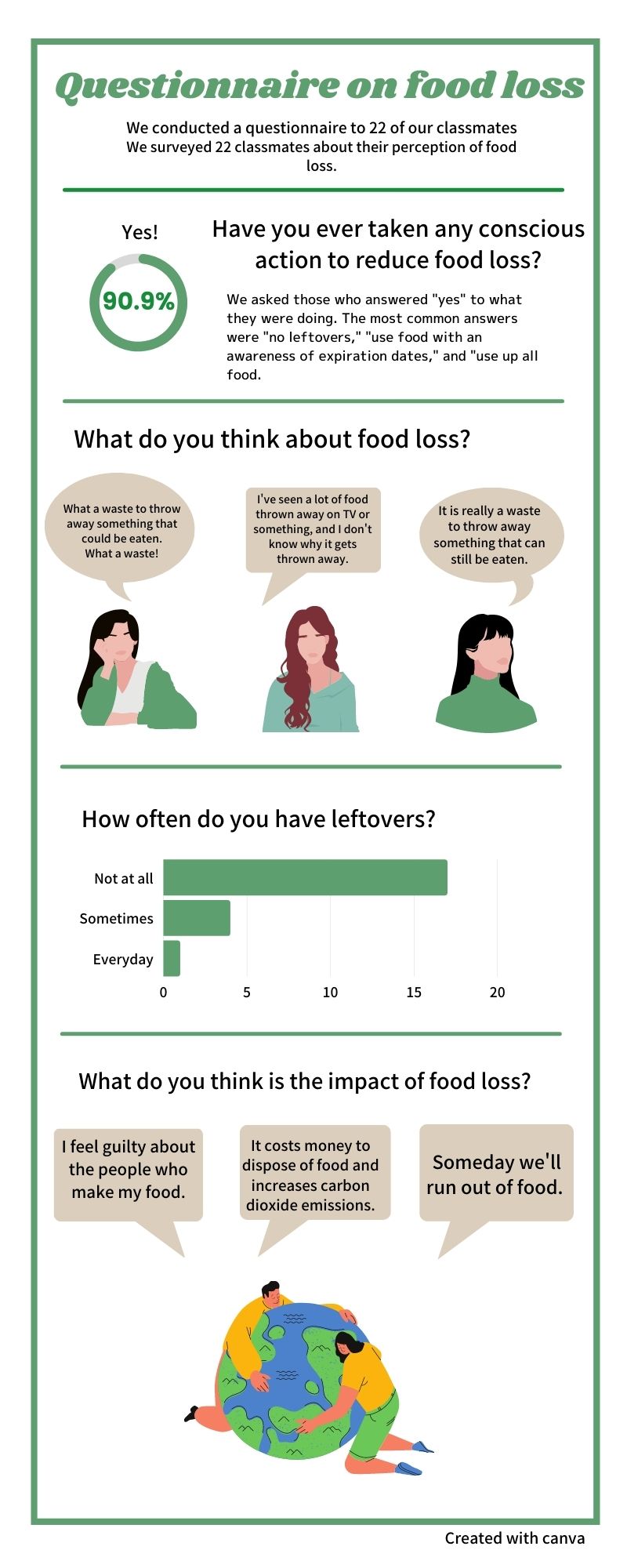
We have conducted various activities with the cooperation of many people, including interviews and workshops. The following is an introduction to the interns, workshops, interviews, and other valuable stories that can only be heard here.
iiMaquet
Social store aims to reduce food loss
iiMaquet opened in May 2019 in Nozawa, Setagaya-ku, Tokyo. iiMaquet buys vegetables, fruits, milk, and other foods that would otherwise be discarded from retailers and sells them at reasonable prices. Currently, they are also trying to educate the younger generation by accepting interns and holding workshops. This time, we participated in the "Learning with Parents and Children Workshop" held at iiMaquet as observers, and also had the opportunity to interview Mr. Yoshiaki Yamanaka, the owner of iiMaquet.We spoke with Mr. Yamanaka
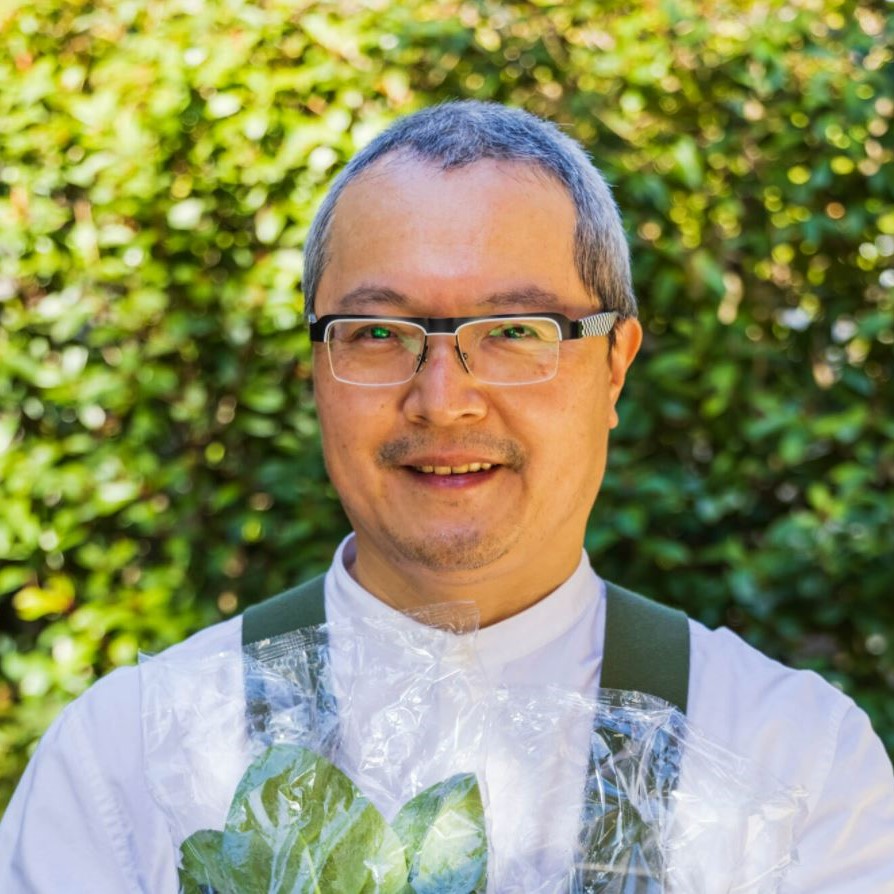
Rescue food that would otherwise be discarded
iiMaquet buys expired food from companies at reasonable prices and sells it to consumers at reasonable prices.Unloading vegetables from a truck.
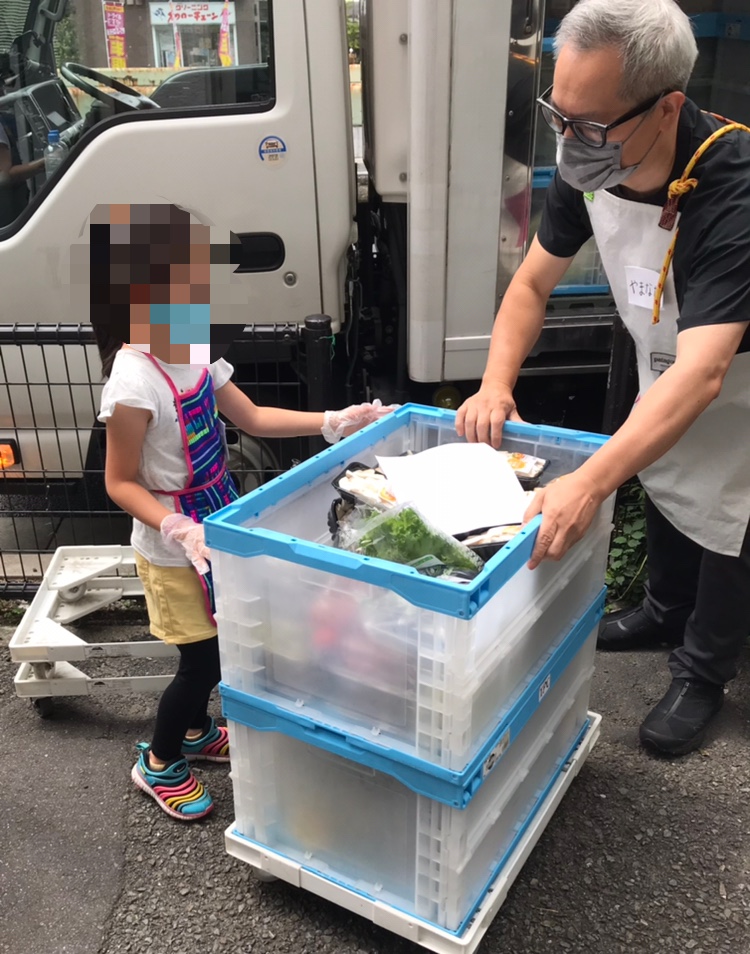
Vegetables lined up throughout the store
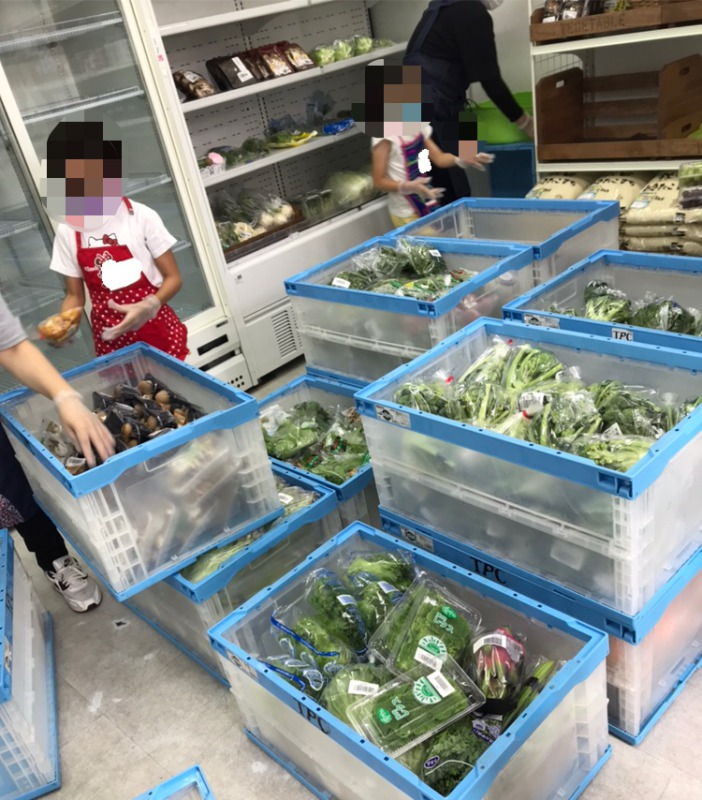
They say that most of the vegetables on the store shelves are gone. In one year, 300 tons of food that would normally be discarded by supermarkets is rescued!

Why can't supermarkets keep so many good quality vegetables in their stores for so long?

For that matter"The rule of thirds"are a big part of it.The one-third rule divides food products into three equal parts from the date of production to the expiration date, and food products must be delivered or sold by the delivery or sales deadline. The one-third rule divides food into three equal parts from the date of production to the expiration date.

Why don't you sell them at a discount at a store or something, even if you are forced to?

For a store, giving a discount means lowering the value of the product. For example, if discounted tomatoes and regular priced tomatoes were placed in the same store, the discounted tomatoes would sell and the regular priced tomatoes would not sell as well, resulting in a loss of profit.

I see.

After all, it is easier and faster for stores to dispose of food, so they inevitably prioritize economic benefits. That's why we at iiMaquet buy food that is past its sell-by date at a reasonable price and sell it at a reasonable price, not too cheap, so that our customers can understand what we are doing. Our goal is "upcycling", and we want to increase the value of our products by selling fruits and vegetables at our iiMaquet.

That's right. So we thought that if supermarkets and convenience stores have a surplus of food, we could eliminate food loss by selling it for zero yen, but does that mean that we are "lowering the value of food"?

Yes, we do. We also sometimes put the items that we just couldn't sell in the front of the store in the "free to use" section. But to say that it is "free" would mean that the value of the fruits and vegetables would be zero. Of course, there is the possibility of not being able to make a profit on the vegetables, and there is also the possibility of not being able to sell the food that you normally sell because of the customers who come for this. That is why we have set "upcycling" as our goal. Up-cycling is an attempt to go one step further than recycling, and it means "to create things with higher value. By selling food that would have otherwise been discarded at iiMaquet, I believe we can increase its value as a "product that contributes to reducing food loss.
Food Loss Reduction x Education for Younger Generations

What do you hope to do in the future?

I would like to disseminate information about food loss as a "store that actually takes measures to reduce food loss.
iiMaquet sells about 300 tons of food per year that should have been discarded. However, this is a very small amount compared to the 6 million tons of food that is thrown away annually in Japan. But this small effort is not in vain. I would like people to know about iiMaquet, and through iiMaquet, I would like more people to know about the problem of food loss.

Is that also the reason for this "Learning with Parents and Children Workshop"?

That's right. I would be even happier if the children who participated in this "Learning with Parents and Children Workshop" would take this opportunity to think about social issues such as food loss and get involved. I would like to continue to focus on "education" about food loss as well as running the store.
Nowadays, she not only conducts workshops with parents and children, but also disseminates information by accepting interns and volunteer staff.
Workshop for Parents and Children
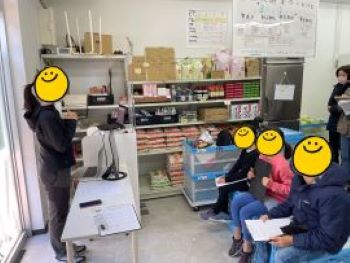
We held our own "Learning with Parents and Children Workshop" at iiMaquet, which I mentioned above, at a later date.
Study about food loss
While tracing the slides we had made, we gave a lecture on food loss from several perspectives, including the concept of food loss, causes, problems, and action plans that can be taken now. In addition, the lecture was structured in such a way that we could output the contents rather than just giving a one-sided lecture. At the end of the session, the participants were asked to fill in an action plan that they can take from tomorrow to reduce food loss in the form of "My/We Action Declaration". By declaring actions that can be taken from tomorrow, the aim was to make the issue personal to the participants. After filling out the form, I asked several people to share their declarations with me.Cashier experience

impressions
We had to create the entire workshop structure and contents from scratch, so it was difficult to get a good feel for it until the day of the workshop. We were also worried about how to explain the workshop in an easy-to-understand way to the elementary school students, but we were happy to see their satisfaction after the workshop. If this workshop was useful for the children's future dietary habits and consumption activities, we would be happy to feel that we were able to connect them to the future.Some of the participants' comments
・There were many things I learned for the first time about the current situation of food loss, and I was able to gain a lot of awareness.
--> -->
・I was able to prepare for the opening of the store with the children, and also had the opportunity to experience the cash register, which was a valuable experience for me. At first, my son asked me (his mother) to sign up on my own, but after participating today, he was very satisfied. Thank you very much.
・I think this has changed the way I think about food. Thank you very much!
・I was able to understand the lecture very well because it was given in an easy-to-understand and polite manner. I was impressed by the deep knowledge of the high school students.
Food Ecology Center
We visited the Food Ecology Center in Sagamihara City. We were given a tour of the factory and talked to Mr. Takahara.Let's take a look at the video below to learn more about the Food Ecology Center and what it looks like inside the plant.
Create a recycling system
As mentioned in the video, the system involves rescuing food that would otherwise be thrown away from food businesses, transporting it to a food ecology center, and processing it into feed for pigs. The feed, which has created new value, is then shipped to pig farms to be used as nutrition for the pigs. The pigs are then sold again to food businesses, creating a cycle.Feed that can be eaten with peace of mind

Is it okay to feed human food to pigs?

Yes, we get a lot of food that the pigs can eat in the first place. We receive vegetables, bread, tortilla dough, etc. before they are cooked, rather than after they are cooked by humans. This means that the pigs can eat with peace of mind. In this way, a circulation system is established.

Oh, I see!
Ingenious feed
The pig feed produced at this food ecology center is different from other feeds in that it is in liquid form. Most feed is granular, but there are several reasons why it is liquid.
First of all, it requires a large amount of energy to remove water and dry it, so it can be cut down and made in an environmentally friendly way.
Also, from the pig's point of view, the liquid has the advantage of not getting into the lungs like powder does, which is good for their health.
We talked about the SDGs!

Is that an SDGs badge on your collar?

Yes, that's right. (laughs) Our activities are also exactly in line with the SDGs, so our employees are wearing these.

However, our factory was established in 2005, when there were no words such as "SDGs" and "food loss" was not well known. At the time, there were no words such as "SDGs" and "food loss" was not well known. Therefore, the things we were doing coincided with the SDGs, the Sustainable Development Goals.

I see. It's kind of cool.

Thank you very much. Nowadays, many companies are using the name "SDGs" to advertise their activities, but in the end, it is difficult to know whether they are positive or negative for society. Therefore, I would like everyone to pay attention not to the name "SDGs" but to what is inside. I would like you all to pay attention to the contents of the SDGs, not to the name, but to what the company is actually doing and how it is beneficial to society.

I see. I have to make sure of it myself.

Yes, that's right. Don't believe everything you read. You have to think for yourselves whether I am right or not. I am confident that my company is definitely making a difference in society, so I talk to everyone like this and let them tour the entire factory. (laughs)

That's right. It's important to see with your own eyes and think with your head.
information transmission
Currently, the Food Ecology Center is focusing on disseminating information through factory tours (which may be cancelled depending on the situation of the new coronavirus) and online lectures.
nue by totoya
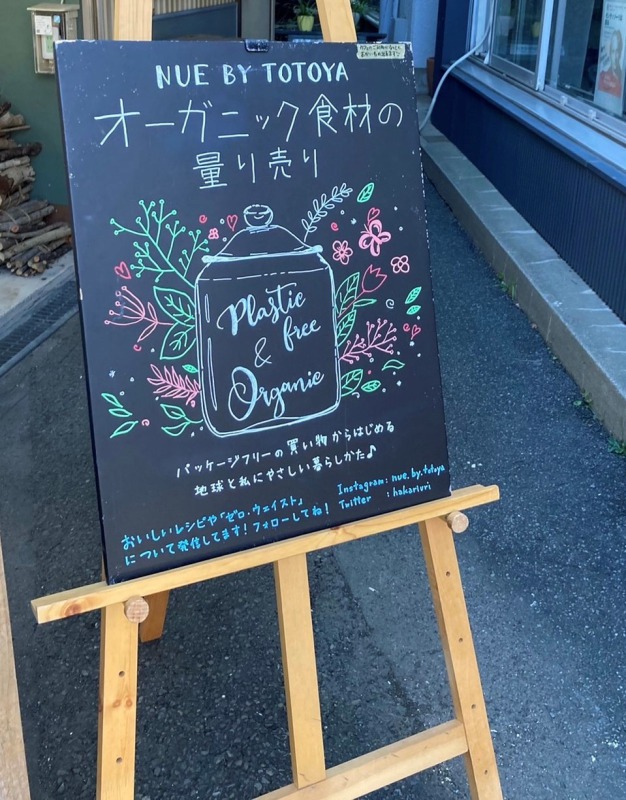
Click here for totoya's website
Sell by weight to eliminate wasteful packaging.
At nue by totoya, all food is sold by weight.The store has a variety of nuts, beans, dried fruits, buckwheat, honey, etc.
Many of their products are imported from Europe with certified organic ingredients.
After measuring the weight of the containers brought by the customers, each person puts in as much food as they want, and at checkout, the price is determined according to the weight of the food minus the weight of the container.
buyer
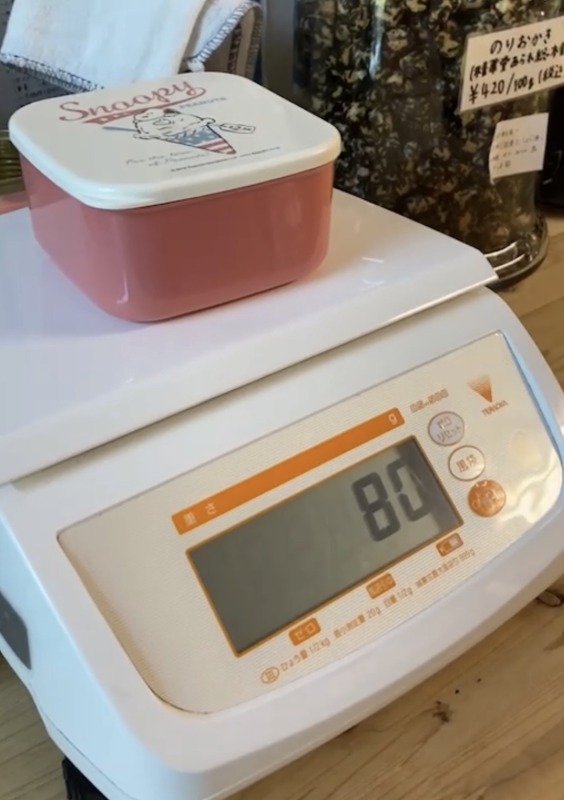
(1) Measure the weight of the container you brought and fill it in with a colored pencil.
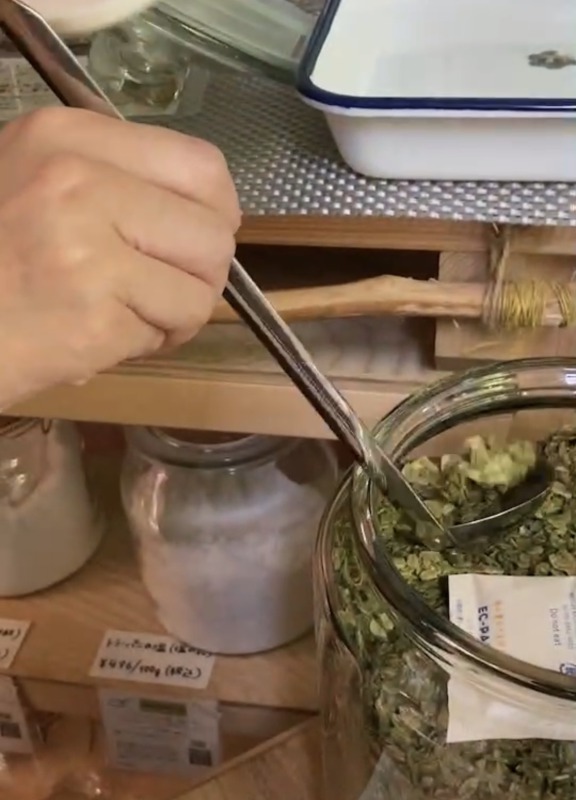
(2) Add as many ingredients as you want.
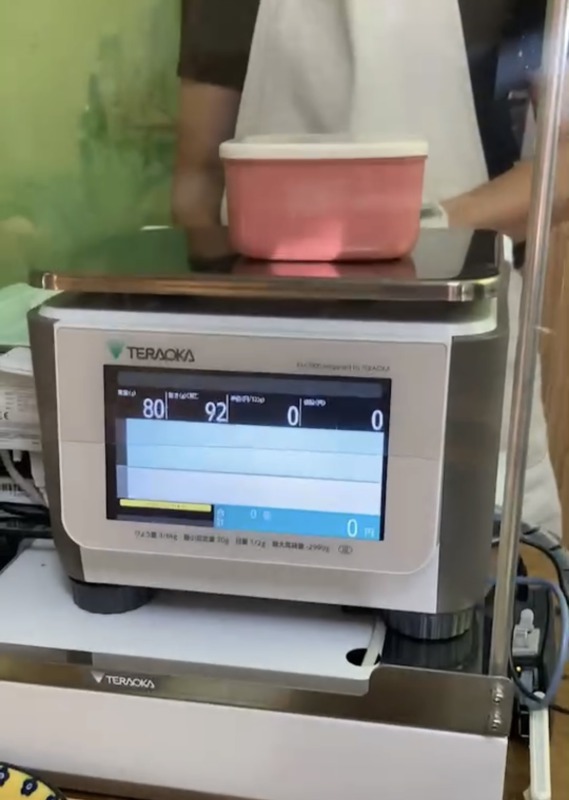
(3) Checkout
They come in bulk
Rather than receiving products every day, as supermarkets and convenience stores do, and keeping them on the shelves at all times, totoya receives food in bulk to reduce transportation and broadcasting costs.

If you do it in bulk, won't you run out of products?
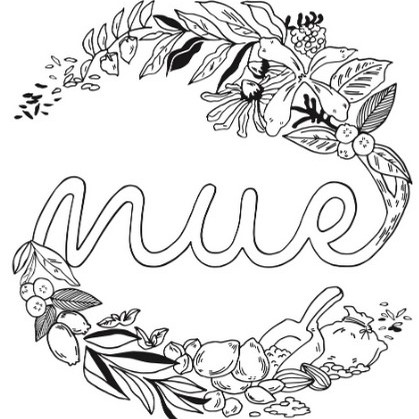
Yes, you're right. After all, there are times when we run out. We don't always have them in the store, but rather we ask our customers to buy what we have. We do this with the understanding of our customers.

I see. Nowadays, we take it for granted that our products are always in stores...
To promote the sale of products by weight as a model store.
Currently, totya is a model store that offers a course on selling by weight. There are two ways to do this: online and in person at totoya.
Why do you offer this kind of course?

Yes. Even if we, Totoya, do it alone, people who live far away will not be able to use it. So, I hope that these zero-waste weigh-in stores will take root in each region of the country.

I hope more people will continue to sell by weight.

That's right. I'd be happy if people actually enjoy selling by weight at the store. More than anything, I think they will feel good when they go home and there is no garbage at all.

Yes, it is!
Unattended vending machine fuubo
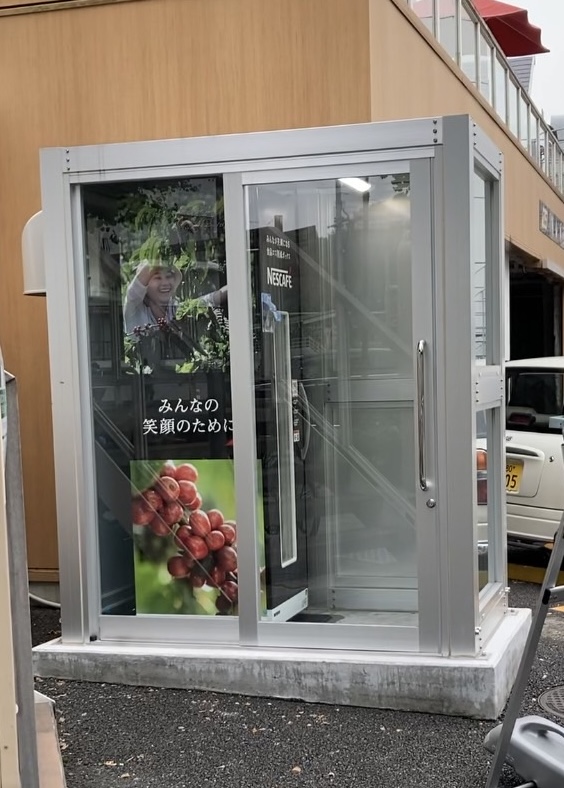
How did you start your business?
Mr. Okisugi visited various areas as a backpacker while he was a university student. When he gave cookies to children who held out their hands and said "Give me money," he saw them smile and eat them. Currently, Minatoku Inc. is developing and operating "No Food Loss", an application for reducing food loss, and "fuubo", a food loss box. We also donate a part of the sales to support organizations.Rivals are convenience stores.
Convenience stores generate about 7,000 yen worth of food loss per day. In an attempt to solve this situation, they developed an app called "No Food Loss" to reduce food loss. However, what he realized was that the more food loss is thrown away, the more the convenience store headquarters benefits. Instead of trying to solve this problem by himself, he felt strongly that he had to change the system that generates food loss. If convenience stores produce food loss, then let's make a retail store that produces no food loss at all! That's how we came up with the "fuubo" food loss box.Food loss BOX "fuubo
Fuubo is an unmanned vending machine that sells products that cannot be sold at normal prices due to the one-third rule. It mainly sells food products from Nestle, a major food manufacturer. Customers can purchase products online in advance and use the one-time password issued upon purchase to take out the products. The stores are located in six locations nationwide.Contract with the world's leading food manufacturer

Food loss is the end result of capitalism?
In Japan, food loss has become the norm due to the establishment of mass production and mass consumption. The Eco Action Point program led by the Ministry of the Environment is said to be an opportunity to change the way we think about mass production and mass consumption. Eco Action Points" is a nationwide program that focuses on eco-action. Let's hope the government's initiative will change the mindset of us, the people!The Future of "fuubo
The purpose of fuubo is not to sell products cheaply. Our goal is not to lower the price of the product itself, but to add value to opening fuubo so that we can make a stable profit and have more people use it.They are considering expanding the number of fuubo units in the future. They are aiming to create a society where fuubo becomes a familiar part of people's lives, and where food loss would occur without fuubo, but where food loss can be reduced to zero with fuubo. This is still a long way off, but we must not give up, he said passionately.
impressions
I was very impressed by Mr. Okisugi's strong desire to "reduce food loss to zero" and the way he is actually taking action with a clear goal. The problem of food loss cannot be solved by simply buying food because it is cheap. I felt that it is necessary to increase the number of people who see the value in purchasing food loss, or to put it in an exaggerated way, in contributing to society.

Currently, we are sending out information about food loss on Instagram. We would like to continue to hold workshops and composting classes and do various other activities.
Please take a look if you are interested.
Conducting surveys
